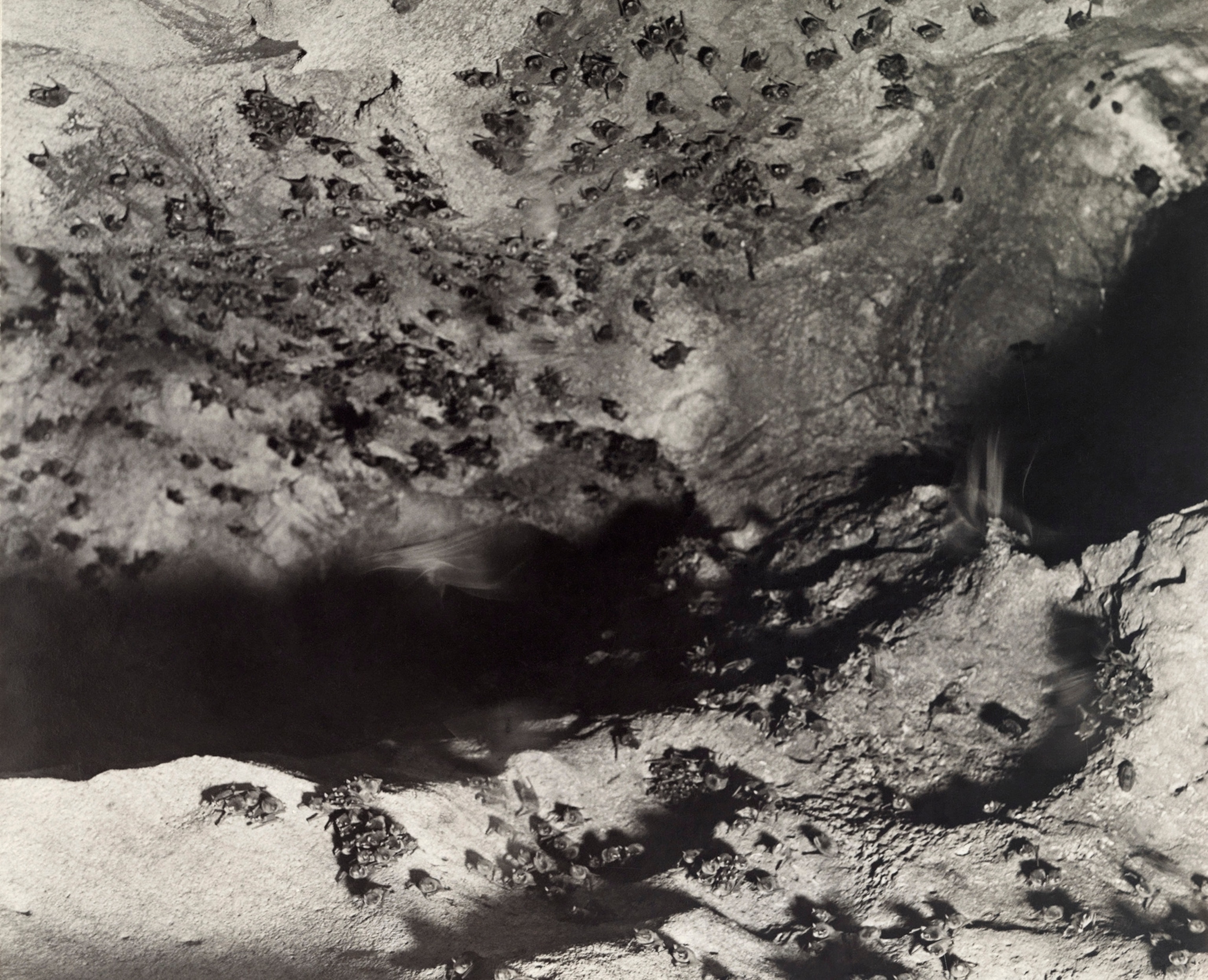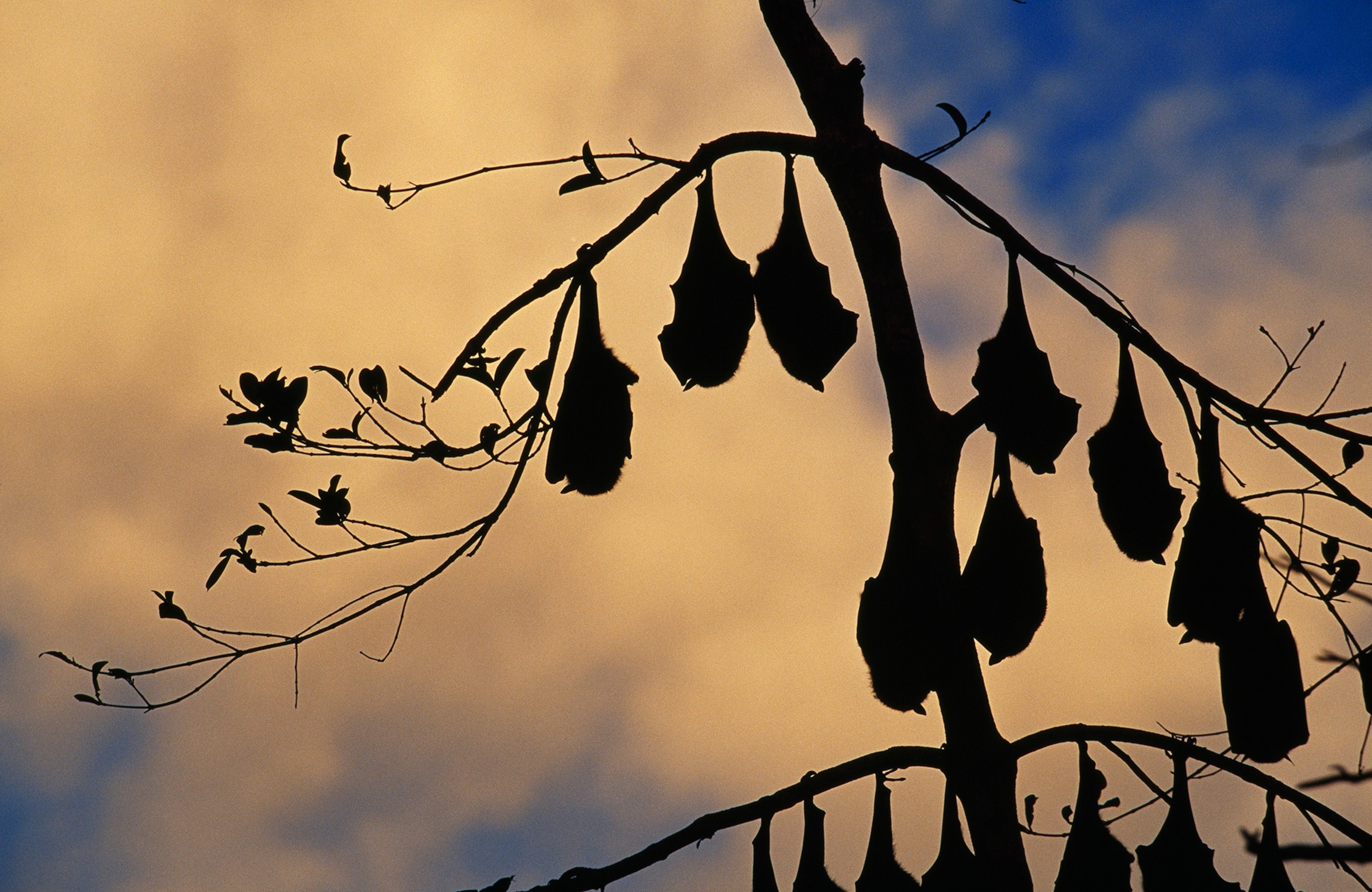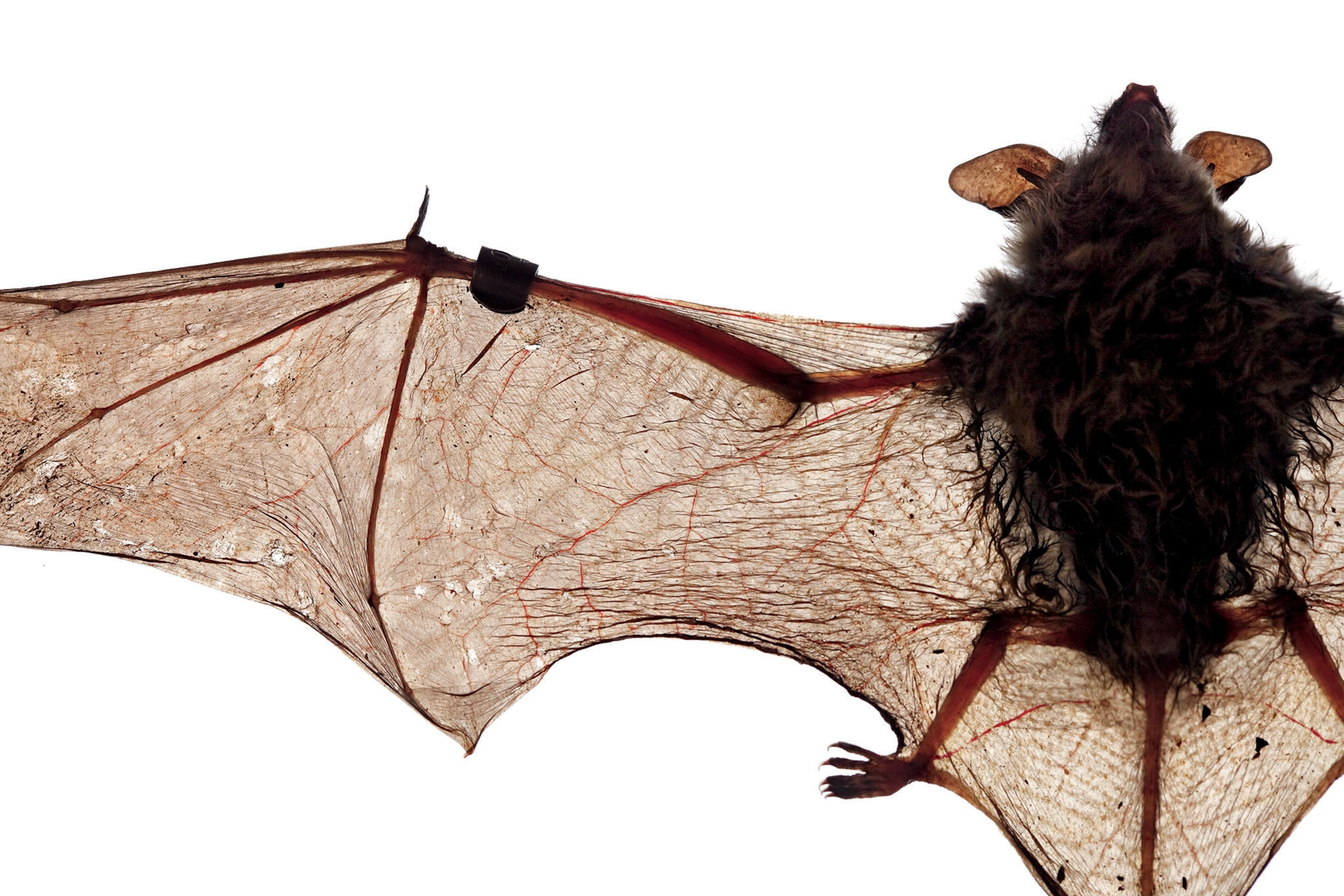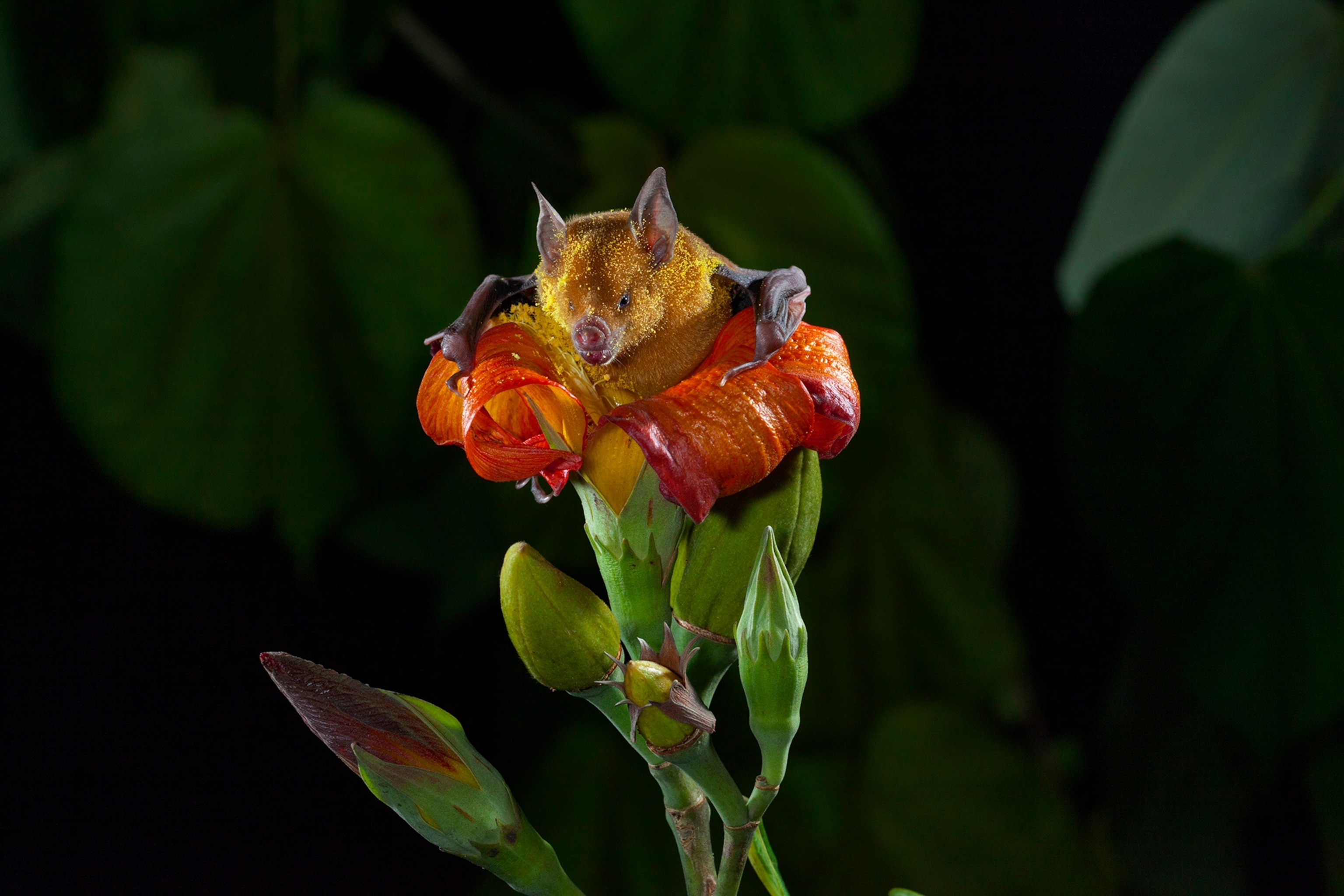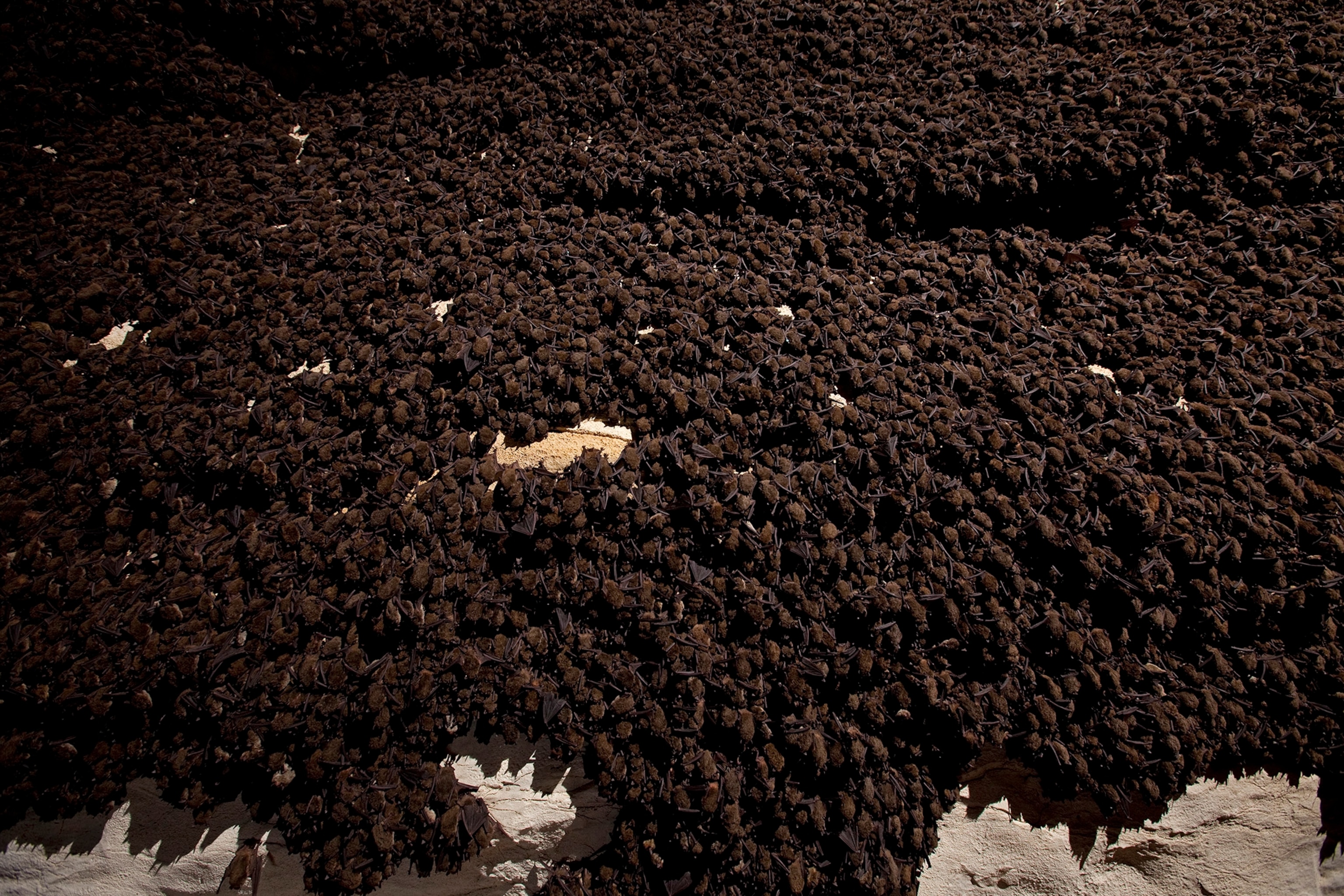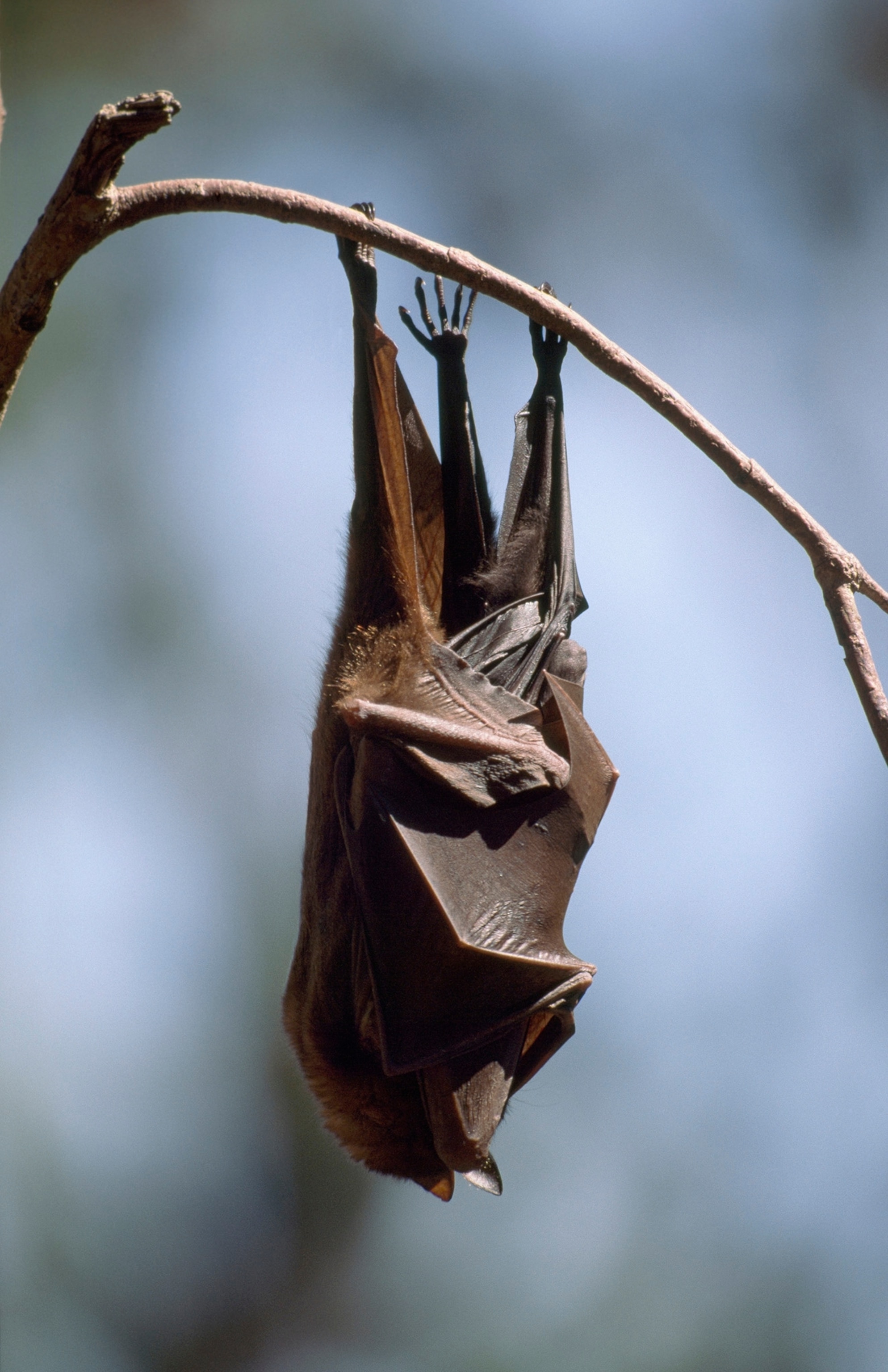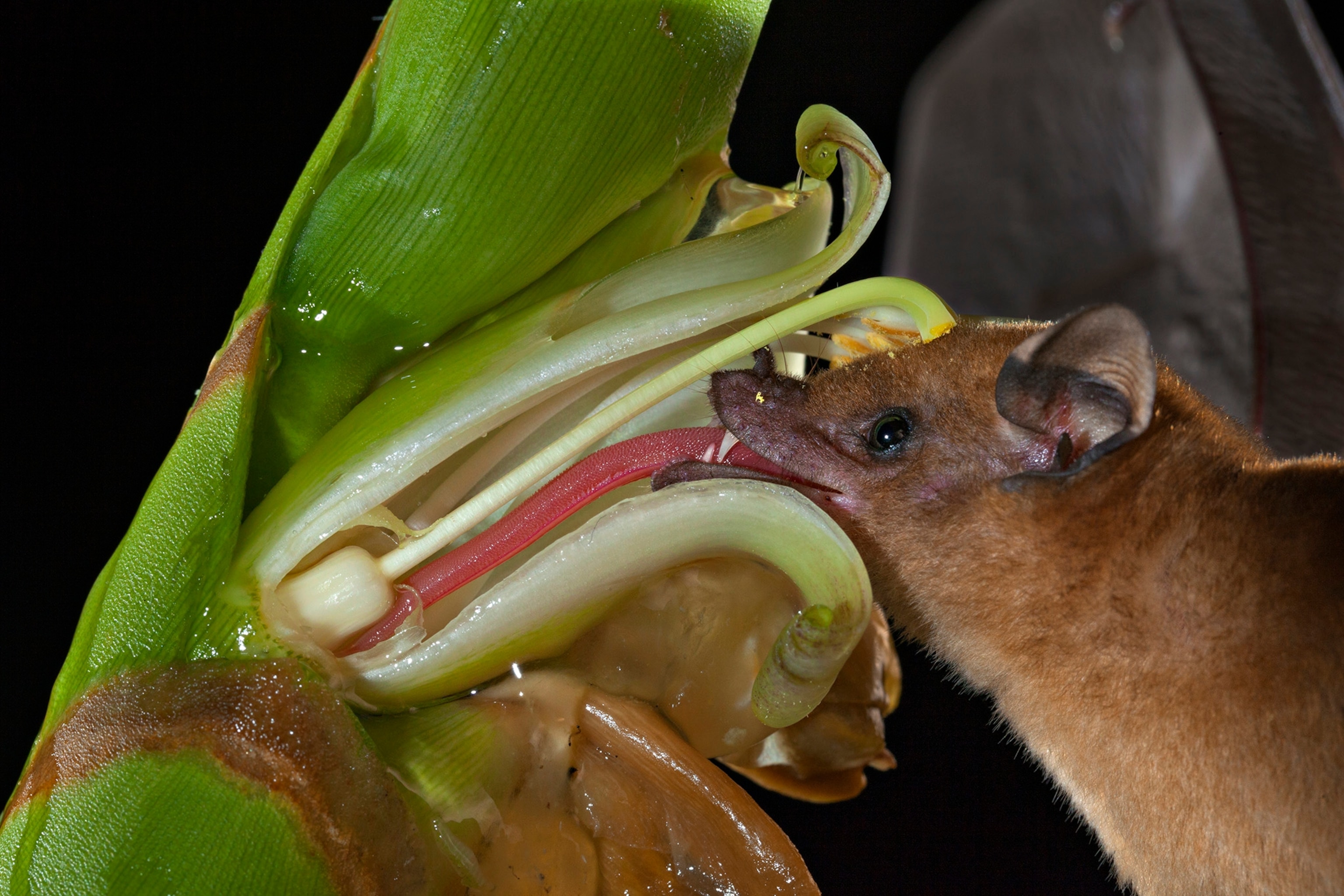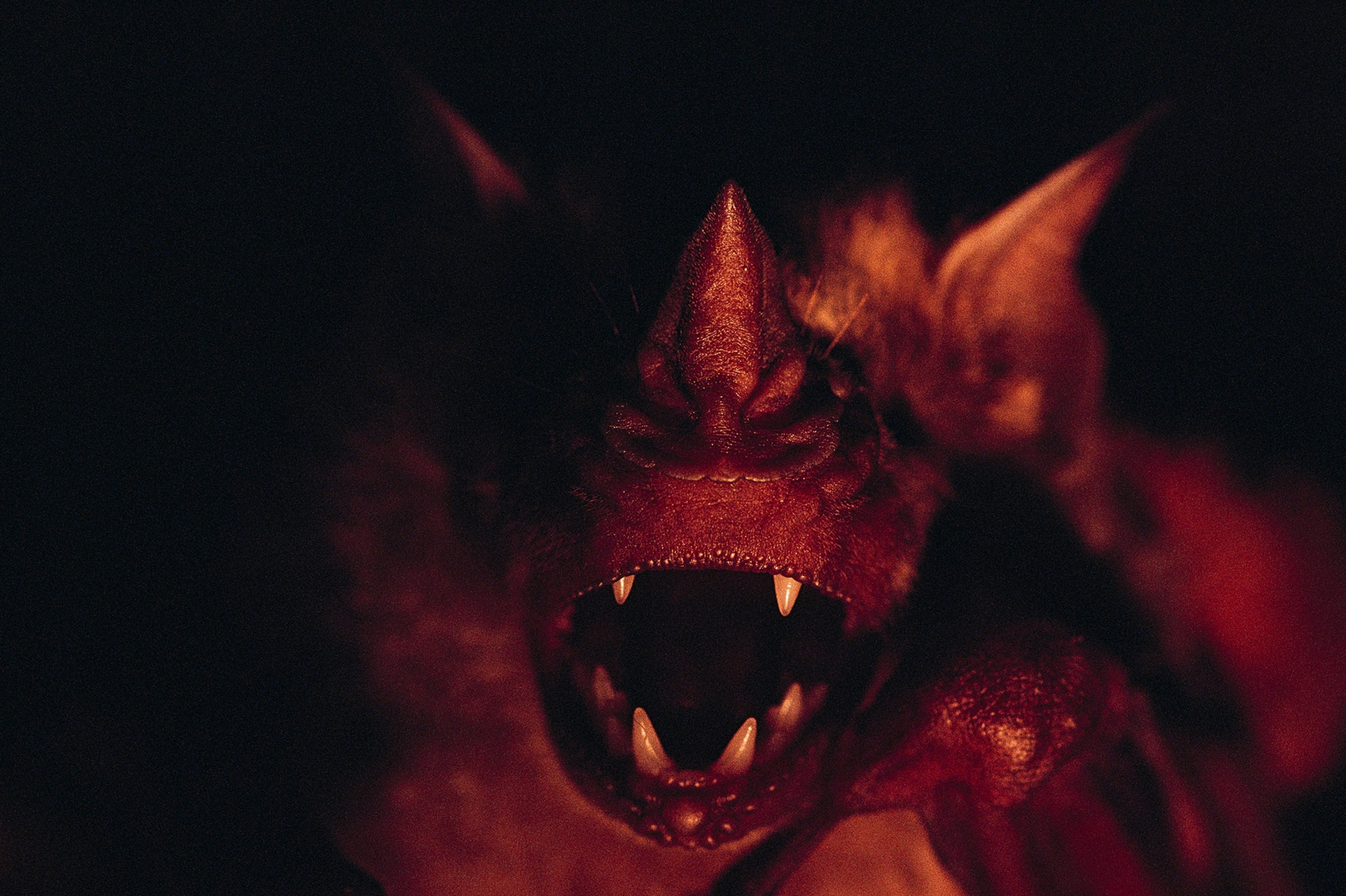16 Pictures of Bats Just in Time for Halloween
During National Bat Week, the scariest thing about bats is how endangered they are.
Bats have long been associated with vampires, witches, and Halloween. But their bad reputation looks more like a trick than a treat.
Bats matter in a big way in countless ecosystems around the world. In truth, the only thing scary about bats is the rate at which they're disappearing.
Bats are a wildly diverse order of mammals, with more than 1,300 species worldwide. About one out of every five mammal species is a bat.
Despite the way they're often depicted in movies and television, only three species of bats feed exclusively on blood. Most species—around 70 percent—dine on insects, making them invaluable partners in human agriculture by removing crop pests. The rest eat nectar and fruit and serve as some of the best pollinators and seed dispersers on the planet.
Unfortunately, these creatures are in serious trouble.
"Bats are facing many threats, including impacts from wind energy, loss of habitat, and the disease known as white-nose syndrome," said Ann Froschauer, public affairs supervisor at the U.S. Fish and Wildlife Service (FWS) and a longtime bat advocate.
Bat Mortality
According to the U.S. Department of Agriculture (USDA), white-nose syndrome has killed more than six million bats in just eight years.
To help inform the world about bats and their plight, the FWS and the USDA teamed up last year to present a whole week of bat education and awareness—just in time for Halloween!
"National Bat Week is sort of symbolic of growing interest in bat conservation and education," said Froschauer in 2014. "It's a really great opportunity for us to work with partners like Bat Conservation International, the Organization for Bat Conservation, and the Save Lucy Campaign so that we can educate people about why bats are so important and why we need more bat conservation and research."
This year, organizers will conclude Bat Week on October 31 by attempting to set a world record for most bat houses built in a day (they're pushing for 5,000). To learn how you can get involved, go to www.batweek.org.
This article originally ran under the title "National Bat Week Pictures: Just in Time for Halloween!" on October 31, 2014.

